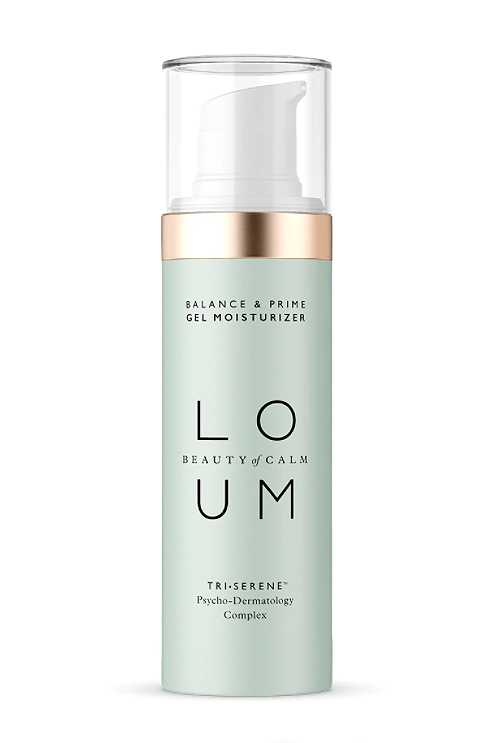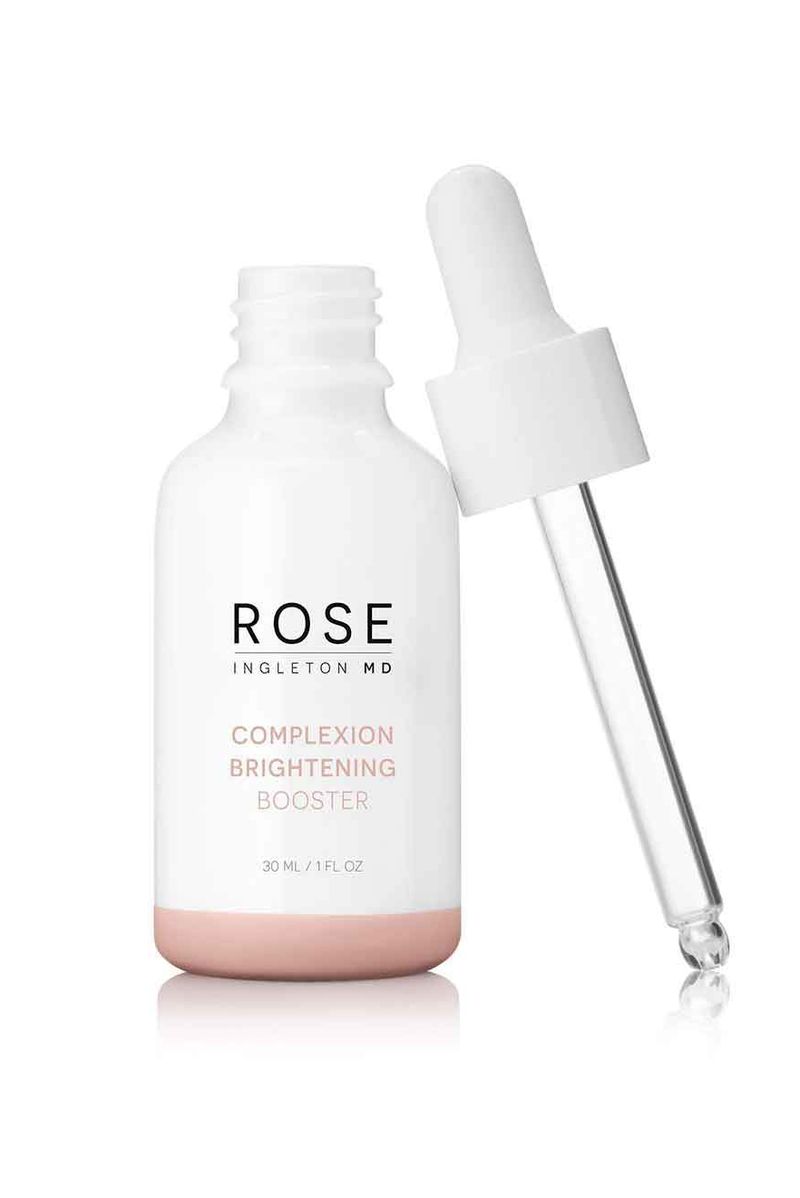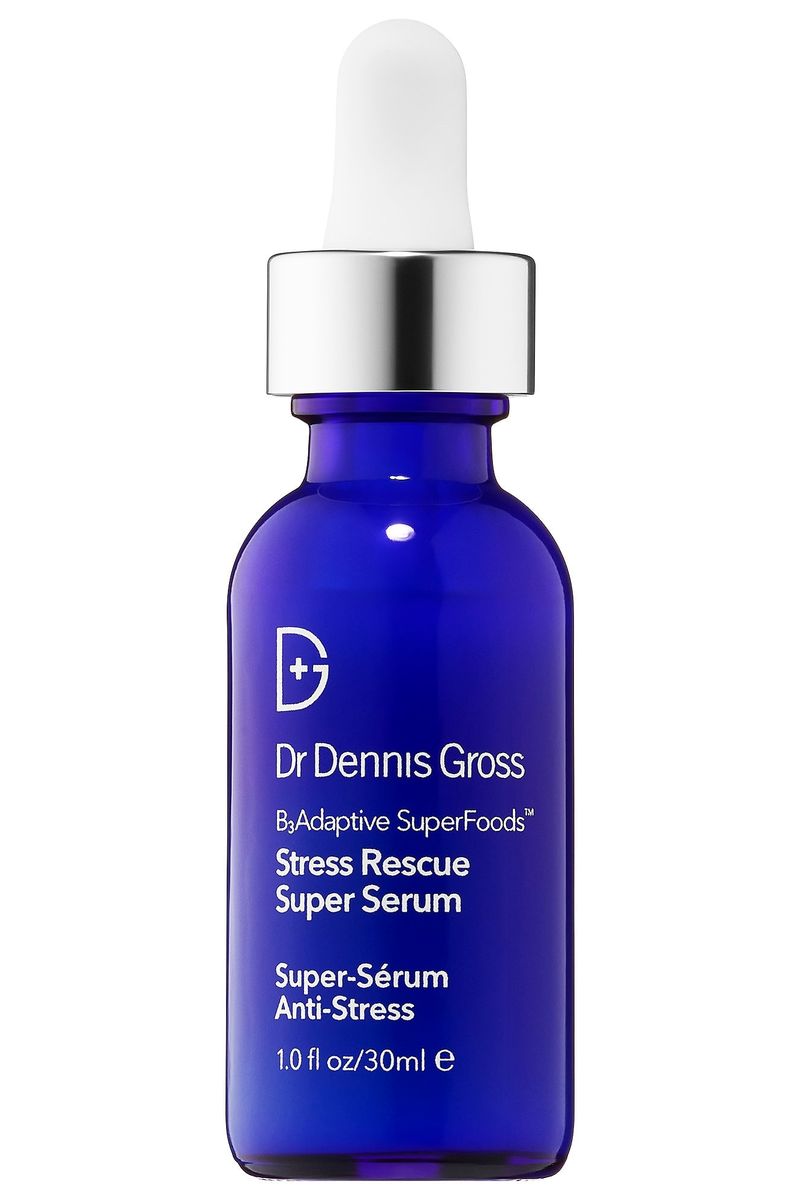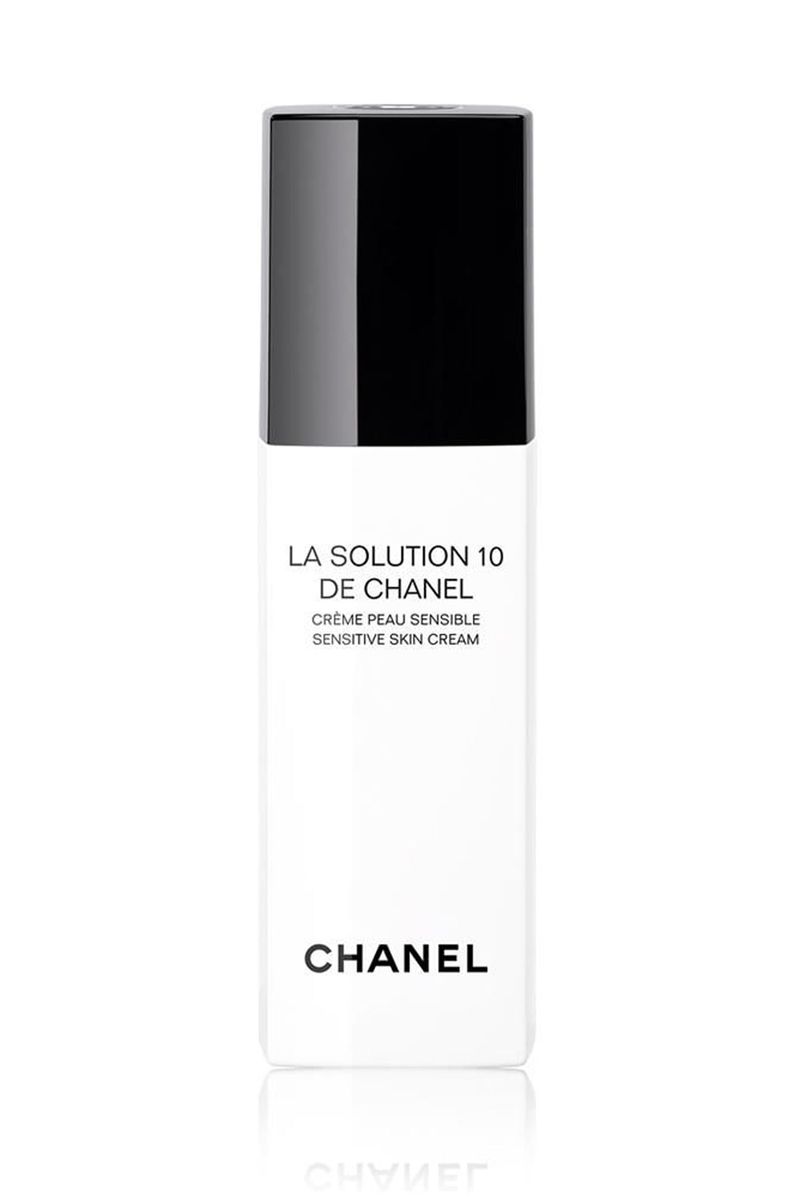How to Beat Stress Acne
Your skin is a mirror for your emotions. Is it any wonder the reflection is a little out of whack at the moment? Here's how to find calm inside and out.
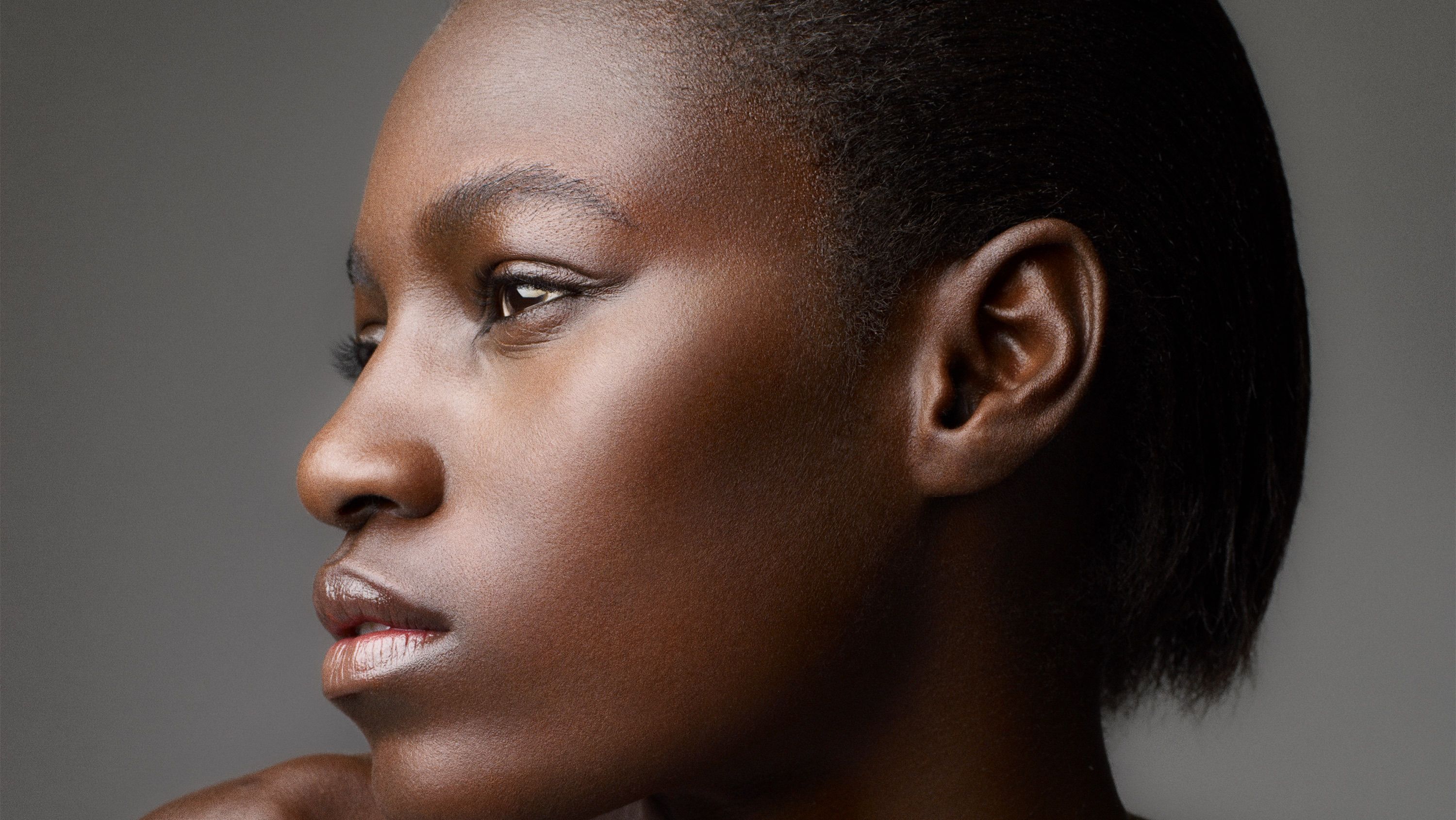
The extreme turbulence of 2020 has yet to be entered into the history books, but it’s already written all over our faces in the form of breakouts, wrinkles, and dryness. That stress can manifest itself on our skin isn’t exactly news, says New York City dermatologist Dennis Gross, but our new, anxious normal has exacerbated the issue.
When we encounter a stressor, our bodies activate a fight or flight response. “Say you see a lion and need to escape,” says Francisco Tausk, a psychodermatologist and professor of dermatology, allergy, immunology, and rheumatology at the University of Rochester. “Your blood pressure goes up, your heart starts pounding, and your brain has to be clear to escape.” Our bodies prioritize the organs needed to book it, and since our skin isn’t one of them, what keeps it in top shape is essentially put on pause. At the same time, a hormonal cascade is unleashed, causing its own sort of complexion chaos.
The system makes sense, evolutionarily. But battling stress today is a marathon, not a sprint. “The fight or flight response is meant to be just seconds to minutes. When it doesn’t [turn] off, that’s when all sorts of problems arise,” explains New York City dermatologist and psychiatrist Amy Wechsler. Here, experts explain what’s causing the conditions you might be experiencing and recommend new advancements in how to deal.
The Symptom: Acne
Of all the stress-induced skin issues, Wechsler has fielded the most complaints about acne lately. Stress can serve up the perfect storm of increased inflammation and sebum production needed to make a pimple. “It changes the oil chemistry of your sebum so that your pores can clog more easily,” says Gross.
Because the mere existence of acne takes its own emotional toll (studies have linked it with an increased risk of depression), you can end up in a vicious cycle, says Wechsler: You’re stressed because you have acne, which causes acne…which stresses you out.
Even once your pimples heal, though, you might not be totally in the clear. “Breakouts often leave behind hyperpigmentation, and this is especially the tendency for skin of color,” notes New York City dermatologist Rosemarie Ingleton.
You’re stressed because you have acne, which causes acne which stresses you out.
The Solution: Kill Breakouts With Kindness
Your first instinct may be to douse your skin in the typical acne potions, but hold up. Since your skin is more sensitive during times of stress, trade drying benzoyl-peroxide cures for milder salicylic-acid-backed ones; this is key for preventing discoloration. “Anything that stings equates to inflammation,” says Ingleton. “When that inflammation goes away, you’ll likely be left with some dark spots.”
Get exclusive access to fashion and beauty trends, hot-off-the-press celebrity news, and more.
If that happens, opt for gentle brighteners that won’t further stoke the fire of inflammation, like fruit acids and niacinamide, found in Ingleton’s Rose MD Complexion Brightening Booster. Unlike hyperpigmentation treatments with lightening agents like hydroquinone, gentler ingredients “will shed the dark spots over time, as opposed to bleaching out the skin, which can end up going too light,” explains Ingleton. Whatever you do, don’t stop moisturizing: If you dry out your skin, the organ will only overcompensate with more sebum production. Simply look for a noncomedogenic formula. Loum Stay Balanced Primer Moisturizer is infused with salicylic acid, anti-inflammatory wild indigo and microalgae, and broad-spectrum CBD, which studies have shown can also curb excess oil production.
The Symptom: Dryness & Sensitivity
When peace of mind goes MIA, so does your skin’s moisture content. Stress stalls its natural production of complexion hydrators like hyaluronic acid. A second reason your skin looks and feels parched: Inflammatory norepinephrine and cytokines disrupt skin-barrier function, says Tausk, resulting in dryness, inflammation, and irritation. “There are a lot of people who, when they’re not stressed, can tolerate a lot of products,” notes Wechsler. “When they get stressed, though, they can get an itchy rash. ”
The Solution: Baby the Barrier
To return your protective skin barrier to peak functionality, ditch anything that could be remotely irritating or drying, including toners and exfoliators, says Wechsler. Then switch your skincare lineup to fragrance-free and hypoallergenic formulas that are packed with replenishing moisturizers. Chanel Solution 10, a moisturizer Wechsler codeveloped to address sensitivity often spurred by stress, combines hydration-boosting glycerin, restorative shea butter, and a unique silver-needle-tree extract that helps stave off irritants.
The Symptom: Wrinkles and Dullness
Feel like you’ve aged a decade in the past year? Your suspicions aren’t totally unfounded. Thanks to the loss of circulation in the skin that results from the fight or flight response sending blood to essential organs, says Gross, your once youthful glow dims once stress hits. The tension that’s invaded your neck and jaw has also (likely) made its way onto your face in the form of lines and creases.
But the hormone cortisol can do the most damage here. “It induces collagen degradation, skin thinning, and delayed wound healing,” says Tausk. Research also indicates that stress can even interfere with DNA repair and that it’s associated with shorter telomeres, the protective caps at the end of our chromosomes that shrink as we age.
All this damage happening from inside the skin can make it more susceptible to damage from the outside. As our internal production of free radicals spikes, our natural supply of antioxidants dwindles, says Gross. In turn, skin is left more vulnerable to external stressors, like UV rays.
The Solution: Up Your Defense
First, some good news (finally): “Short-term stress aging—six months or less—should be reversible,” says Wechsler. So, those furrows planted between your brows can soften. It’s the more long-term aging you’re going to want to get a handle on.
Since, again, your skin is on the sensitive side, this isn’t the moment to sample aggressive active ingredients like retinol. Instead, prioritize protection with free-radical-neutralizing, antioxidant-rich formulas, suggests Wechsler. Gross created his Stress Rescue Super Serum after witnessing firsthand all the ways in which stress was robbing his patients of happy, healthy complexions. It contains a blend of microencapsulated antioxidant superfoods—goji berry, cacao, perilla sprout—plus anti-inflammatory adaptogens and barrier-restoring niacinamide for an all-around boost.
Of course, none of this will help if you don’t address the underlying issue: the actual stress. “I’m trying to encourage everybody to take a moment for themselves every day. Do whatever it is that gives you peace and calm,” says Ingleton. As it happens, the very act of slathering on skincare might do the trick. “Simply washing your face can give back a sense of control,” advises Wechsler, “and I think that spills over into the rest of your day in a good way.”
Reset Your Skin: Remedies to help keep complexions calm, clear, and bright.
This article appears in the Fall 2020 issue of Marie Claire.
RELATED STORIES


